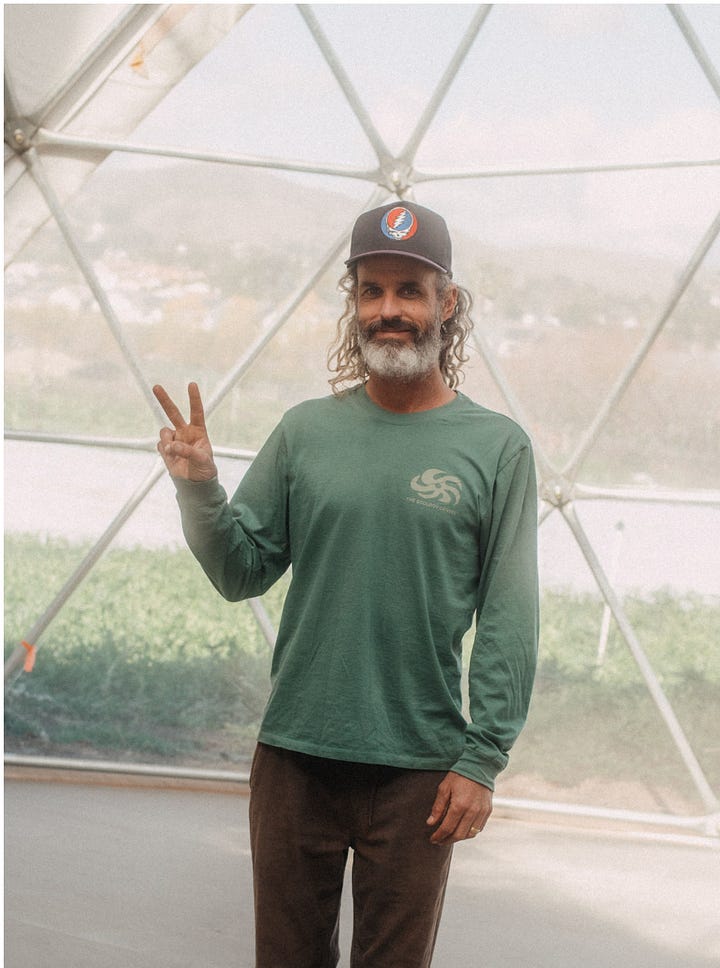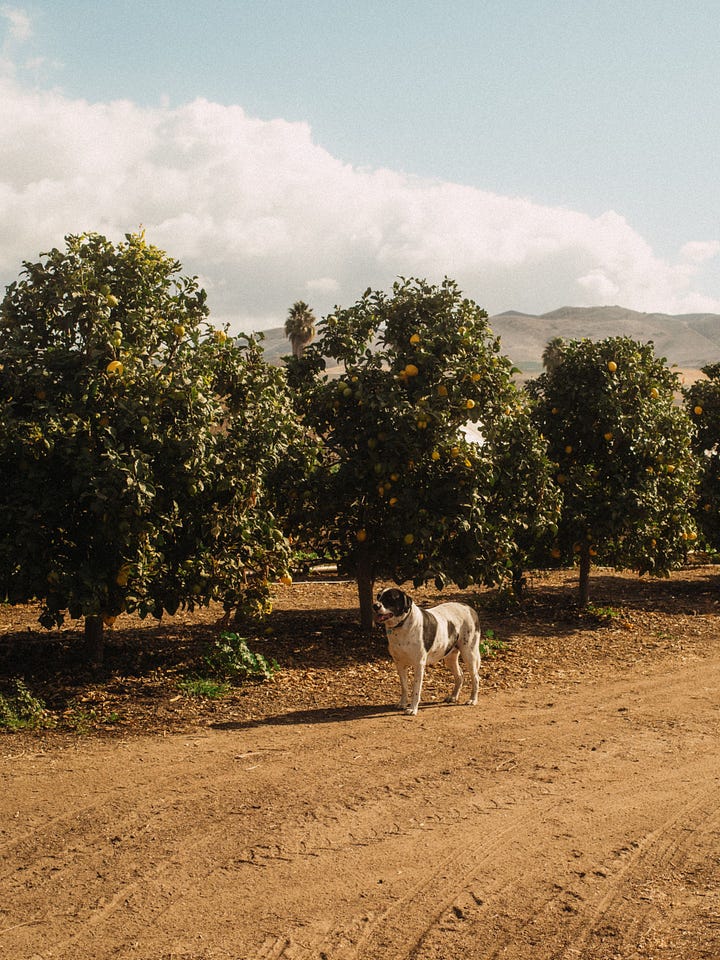It's been a strange, uneasy time in Southern California. And now, the word rebuild is everywhere. But what does it really mean? What will these places become? How do you start over when the land might reject you?
In need of an escape and a day of fresh air, Max Knight and I took off down the coast, heading for San Juan Capistrano, bound for Evan Marks and his Ecotopia—The Ecology Center (TEC). Driving through avenues of mini-malls and signs for the CA mission that I wrote a report on in the 4th grade, we were confused about where we were going– it all felt very suburban. We pulled into the parking lot, and there it was: life. Everywhere. Three school buses unloading kids, teachers corralling them into some loose, over-excited kid formation, trees full of bright citrus, and so many COLORS. After a tragic week in Los Angeles, stepping onto the property felt like crossing into another world—outside, a state still licking its wounds; inside, a fully realized vision of what could be..


Evan walked us around the center, sun-kissed, smiling ear to ear, exuding that quintessential Southern California surfer ease, but without the pretense. He radiates optimism, but the kind that has mud under its nails. A dreamer, a doer. The kind of person who doesn't just talk about what if but goes and builds it, drawing in all the right people. We chatted about soil, community, closed food systems, and how a place can shape a person just as much as a person can shape a place.
Watching happy kids laugh as they picked radishes from the ground, strangers moving in quiet harmony, it wasn't hard to believe he was right about the importance of space. If we do it well, rebuilding doesn't just mean putting things back the way they were. Maybe, like the core of regenerative farming, it means making them better.
I don't even know how to begin talking about what this place is. It's a regenerative farm that grows stunning and delicious produce, a school, a cafe called Campesino that is open 5 days a week, an event space, a center for education and instruction about regenerative practices; there's a farm store (think cookbook, but more tie-dye) and so much more. "We just started going for it, one day at a time," Evan says, "and we picked up momentum every year. That was 16 years ago…" TEC now has 75 staffers and as many as 500 volunteers.
Keep reading with a 7-day free trial
Subscribe to Sam Loves The Market to keep reading this post and get 7 days of free access to the full post archives.






